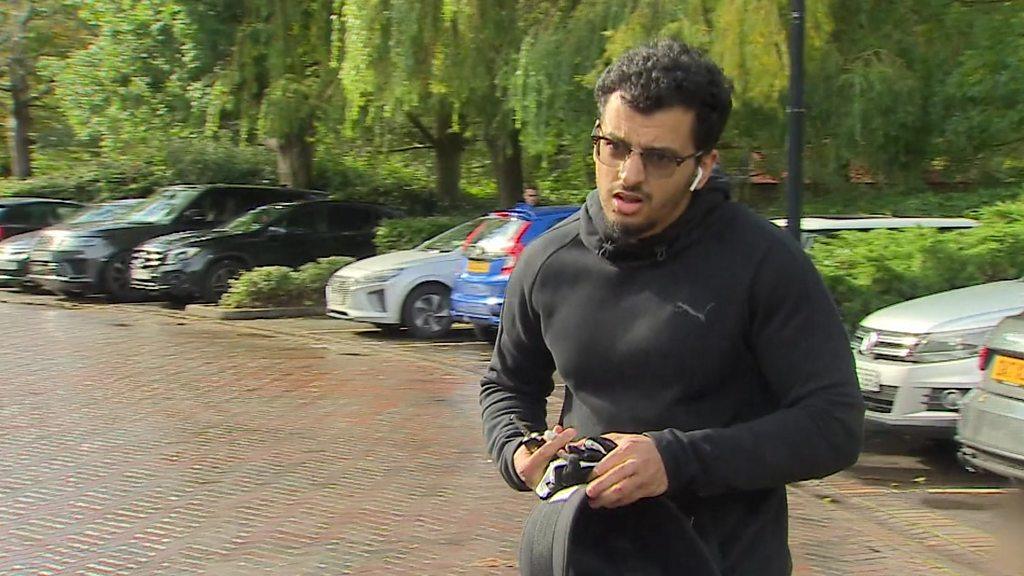Manchester Arena Inquiry: Bomber's brother leaves UK before hearing
- Published
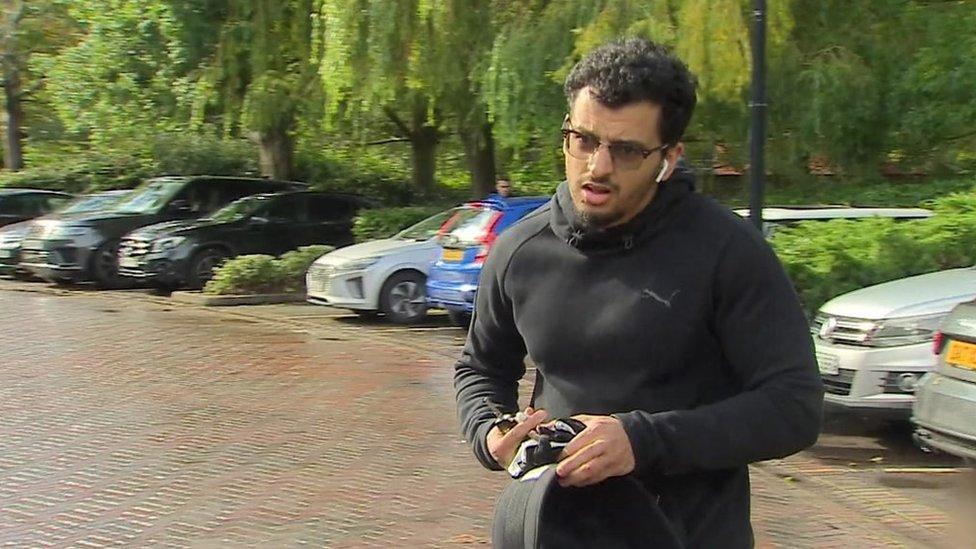
Ismail Abedi has so far refused to answer questions in case he incriminates himself
The elder brother of the Manchester Arena suicide bomber has left the UK ahead of an appearance at a public inquiry he had been ordered to attend.
Ismail Abedi, 28, has always refused to answer questions from the inquiry in case he incriminates himself.
Its chairman, Sir John Saunders, had rejected Ismail Abedi's position and demanded he appear as a witness.
The BBC found him in Manchester, where he still lived, last year and asked him why he was refusing to participate.
Abedi left the UK some weeks ago on a flight to the Middle East, the BBC understands.
He asked for immunity from prosecution before he would agree to give evidence, but Sir John refused his request.
Twenty-two people were killed and hundreds more injured when Salman Abedi detonated a bomb at the end of an Ariana Grande concert on 22 May 2017.
His younger brother Hashem Abedi was jailed last year after being convicted of murdering all those who died.
Paul Greaney QC, counsel to the inquiry, said Ismail Abedi was "not currently in the country and there is no indication as to when he will return".
Mr Greaney suggested Sir John may want to use his powers to compel attendance and urged Ismail Abedi to comply.
"As he surely must understand, the public may infer he has something to hide and so, sir, may you", Mr Greaney said.

Twenty-two people were killed in the May 2017 bombing
Ismail Abedi was arrested the morning after the bombing and interviewed extensively by counter-terrorism police for nearly a fortnight but was later released without charge.
He denied any involvement in or knowledge of the bombing and stated he had played no part in the radicalisation of his younger brother.
While he initially answered police questions, he subsequently gave "no comment" answers during the majority of his 25 interviews.
The inquiry was also told he was stopped by police after arriving at Heathrow Airport in 2015 and his mobile phone had contained recruitment videos and literature produced by the Islamic State group.
The hearing heard authorities viewed his Facebook account, which included a picture of him holding a machine gun with the Islamic State group logo imprinted on the image.
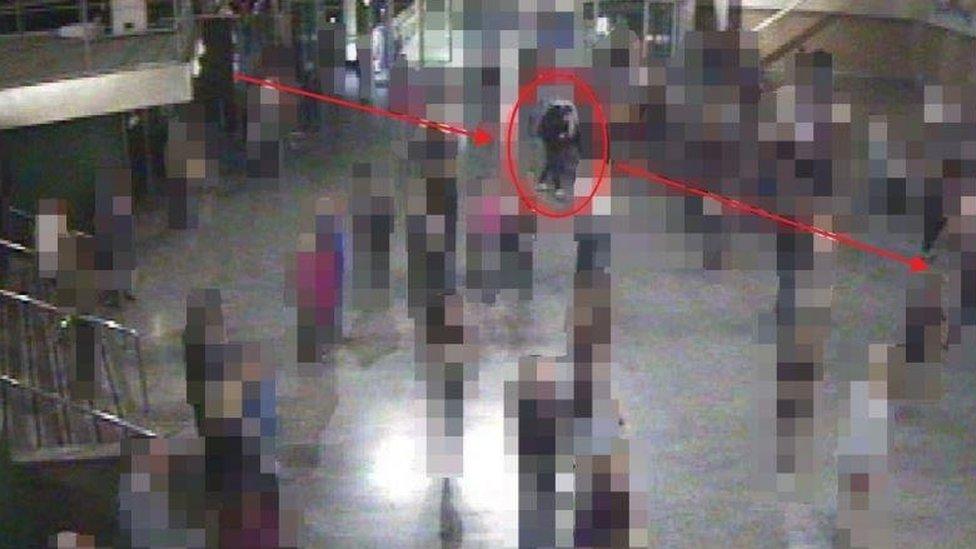
Salman Abedi in the foyer of the Manchester Arena just seconds before he blew himself up
Evidence presented during Hashem Abedi's trial also related to his brother Ismail.
His name was used to buy car insurance for Salman and Hashem Abedi, neither of whom had a driving licence, for a car they bought to transport materials around Manchester during the preparations before the attack.
A bank card in the name of the brothers' mother Samia - which received more than £1,000 in benefits each month despite her being in Libya - was used by Salman and Hashem Abedi to buy relevant items during their attack preparations.
The card was found in Ismail's possessions when he was arrested following the bombing.
The inquiry previously heard the police investigation remains open and there would be further attempts to speak to him.
The Abedi brothers' father Ramadan and mother, both suspects over the attack, are in Libya. Neither has engaged with the inquiry.
Meanwhile, the inquiry has also heard Ahmed Taghdi, another witness due to give evidence this week, was stopped from leaving the UK on Monday.
Currently in custody, he is expected to appear before the inquiry as a witness on Thursday.
The hearing was told he was able to provide evidence of a return ticket to the UK on 20 October. His original destination was not disclosed.
Last week, the inquiry chairman went to the High Court in order to compel the 29-year-old to attend.
Mr Taghdi, a childhood friend of Salman Abedi, was arrested during the police investigation into the atrocity.
The inquiry has previously heard how he accompanied Salman Abedi on a visit to jailed terrorist Abdalraouf Abdallah, who experts believe "groomed" the bomber and helped buy a car that was used to store explosives.
Mr Taghdi, who was a prosecution witness in the trial of Hashem Abedi, has denied any involvement in or knowledge of the attack when questioned by police and was later released without charge.
He is now due to give evidence on Thursday, while Abdallah, currently in custody, is due to give evidence on Wednesday, both in person.
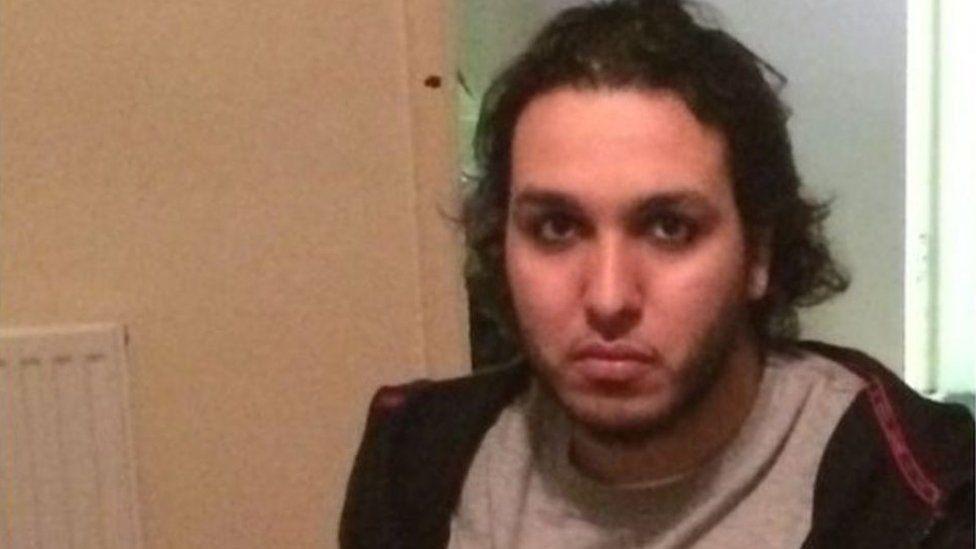
Abdallah was jailed for terror offences in May 2016
The inquiry has been told that both are key witnesses as the hearings turn to why and how Salman and Hashem Abedi became radicalised.
Mr Greaney said: "This is without question one of the most difficult and troubling questions for the inquiry to grapple with.
"It is very difficult to comprehend why a person with any shred of decency could ever think of detonating a suicide bomb in the midst of a crowd, killing or maiming many innocent victims."
On Tuesday the inquiry heard evidence from radicalisation expert Dr Matthew Wilkinson, who detailed his general overview report of Islamist extremism.
He will return to give evidence later this year on matters relating to Salman Abedi.
The inquiry will also hear evidence about Salman Abedi's family, his friends and associates, his internet and social media use, his educational background and the mosques which he and other family members attended.
The inquiry continues.

Why not follow BBC North West on Facebook, external, Twitter, external and Instagram, external? You can also send story ideas to northwest.newsonline@bbc.co.uk, external
- Published15 October 2021

- Published19 May 2021

- Published20 August 2020
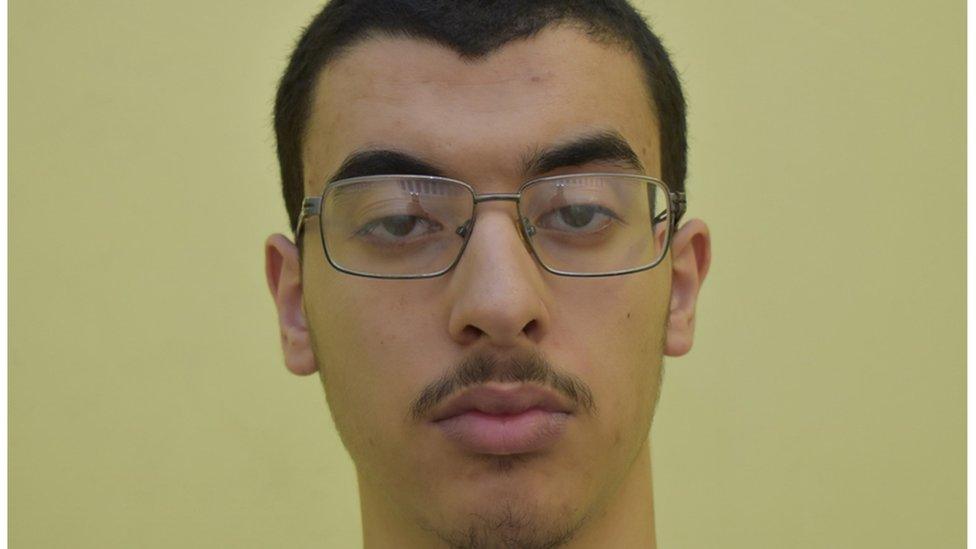
- Published14 April 2021
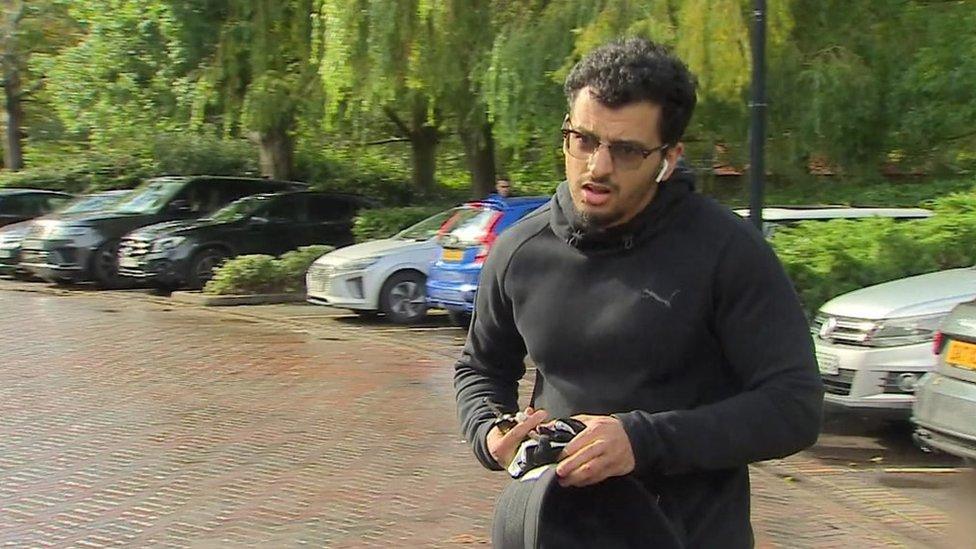
- Published8 October 2020
